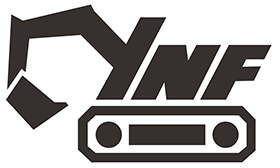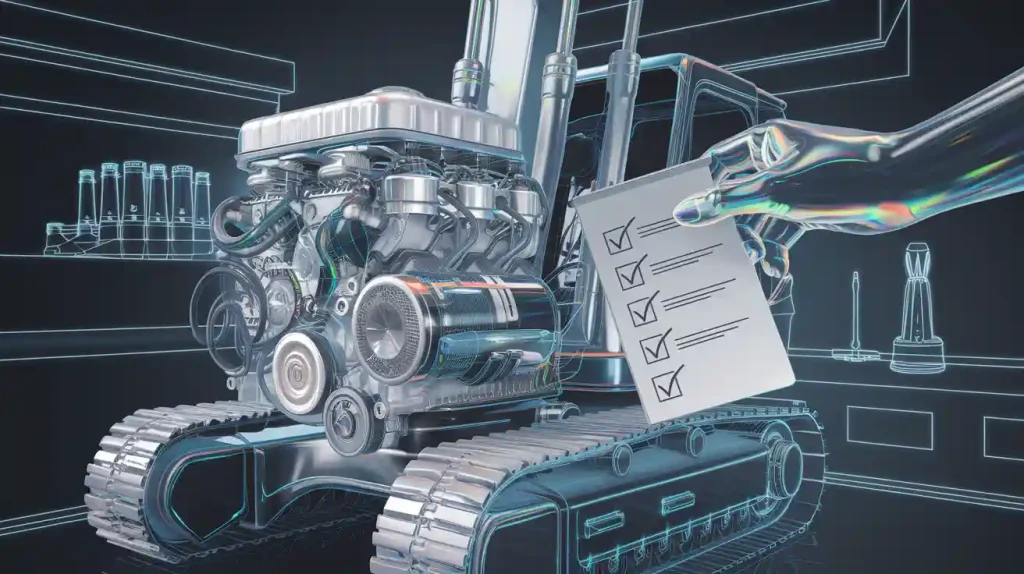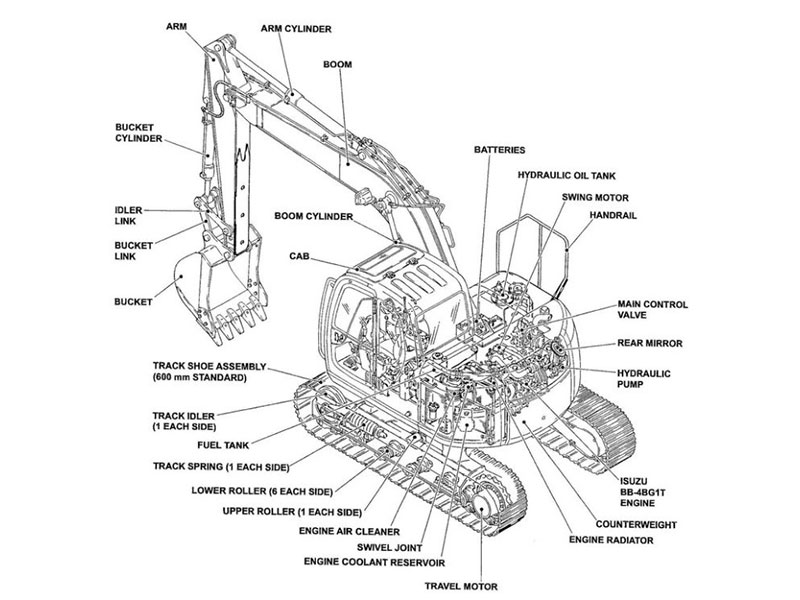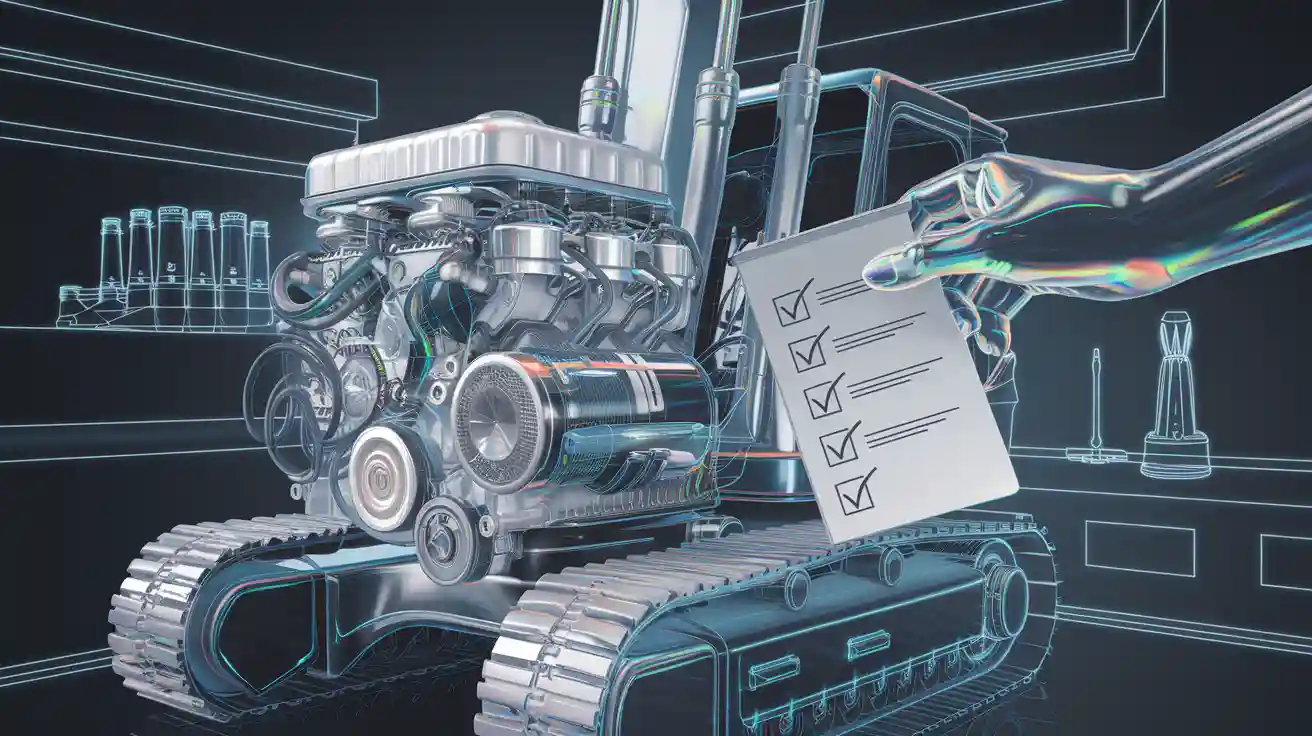
To ensure your excavator operates efficiently, it’s essential to regularly check important engine parts, especially when considering excavator engine parts replacement. Key components include cylinder heads, camshafts, pistons, crankshaft, diesel pump, fuel pump, alternator, starter motor, radiator, water pump, oil filter, and the hydraulic system. Regularly changing the oil and filter can significantly extend the life of the engine. Most companies recommend changing the oil every 100 hours and the filter every other oil change, as outlined below:
Recommendation | Frequency |
|---|---|
Oil Change | Every 100 hours |
Filter Change | Every other oil change |
Understanding how each part functions is crucial for early problem detection, which can prevent the need for costly excavator engine parts replacement. Daily inspections of your excavator can prevent up to 78% of engine failures and address most causes of breakdowns. Utilize this checklist to keep your excavator robust and operating smoothly.
Key Takeaways
Check important engine parts often. Look at cylinder heads, camshafts, and pistons. This helps you find problems early. It can stop expensive repairs.
Change the oil every 100 hours. Change the oil filter every other time you change the oil. This helps your engine work well. It also makes the engine last longer.
Inspect the hydraulic system every day. This stops leaks. Make sure all connections are tight. This helps the machine stay reliable.
Use a checklist for maintenance. Check all engine parts in order. This helps you find problems before the machine breaks down.
Replace old engine parts right away. This keeps the machine working well. It stops more damage. Your excavator will run better.
Excavator Engine Parts
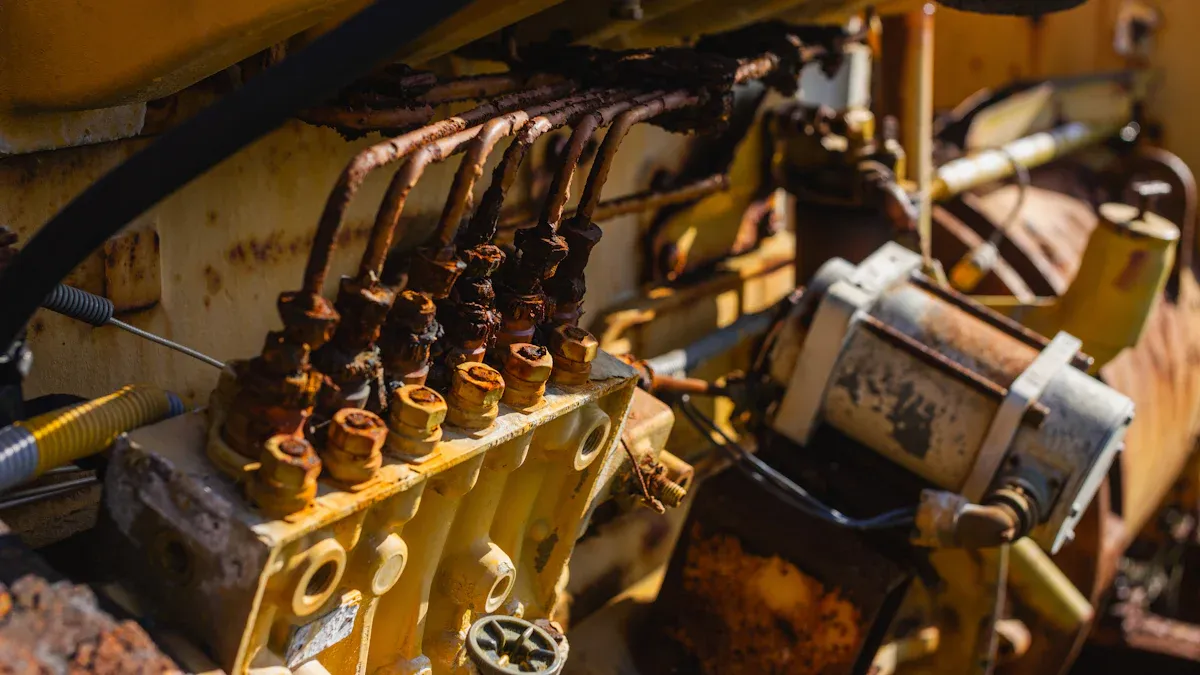
Excavators need many main parts to work well. Knowing these parts helps you find problems early. This keeps your machine working without trouble. Here is a simple look at each important part to check.
Cylinder Heads
Cylinder heads sit on top of the engine block. They close the combustion chamber and hold valves and injectors. You should look for cracks, bends, or leaks. Bad cylinder heads can lower compression and hurt engine power. Checking often helps you avoid big repairs and keeps parts working.
Camshafts
Camshafts open and close engine valves. If camshafts wear out, you may notice:
The engine misfires or idles rough
The engine loses power
You hear ticking or tapping sounds
Metal bits show up in the oil
The check engine light turns on
The engine is hard to start
The engine backfires or pops
The engine uses more fuel
Oil leaks near the camshaft
You see damage when you look
Watch for these signs when you do maintenance. Changing worn camshafts helps your engine work better.
Pistons
Pistons move up and down in the cylinders. This makes the force that powers your excavator. Damaged pistons can cause weak power, smoke, or knocking sounds. Check for marks, cracks, or too much wear to keep your engine strong.
Crankshaft
The crankshaft turns the pistons’ movement into spinning force. To keep it working well:
Make sure oil holes are clean and installed right
Tighten bearing caps to the correct level
Use the right oil with good additives
Do not put in too much oil
A healthy crankshaft helps your engine stay reliable.
Diesel Pump
The diesel pump sends fuel to the engine at high pressure. It helps with:
Good fuel delivery
Better performance and fuel use
Pulling fuel from the tank
Making high pressure for burning fuel
Taking care of the diesel pump stops breakdowns and saves time.
Fuel Pump
The fuel pump gives fuel at the right pressure. If you think there is a problem, do these things:
Check fuel pressure with a gauge
Look for trouble codes
Check for leaks in the fuel system
Listen for strange sounds near the pump
Test the fuel injectors
Also, make sure enough fuel gets to the pump. Check for leaks, remove air, and change filters if needed. A good fuel pump helps your engine parts work well.
Alternator
The alternator charges the battery and powers electric parts. It can fail because of:
Loose or old belts
Pulleys that do not line up
Worn bearings
Bad electrical connections
Problems with the voltage regulator
Broken inside parts
Look for heat, burning smells, or colored terminals. Listen for strange noises like whining or squealing. Checking often helps you stop electrical problems.
Starter Motor
The starter motor helps start the engine. A good starter motor means fewer breakdowns and more work time. You can make it last longer by doing maintenance, using good parts, and installing it right. Regular care keeps this part working.
Radiator
The radiator cools the engine by moving heat from coolant to air. Check for leaks, blocks, or rust. A clean radiator stops overheating and protects engine parts.
Water Pump
The water pump moves coolant through the engine. If it fails, coolant cannot flow right. This causes overheating and uneven engine temperatures. Check and change the water pump when needed to keep the engine cool.
Oil Filter
The oil filter cleans dirt from engine oil. If it gets blocked or dirty, the engine does not get enough oil. Change the oil filter when needed to keep parts working well.
Hydraulic System
The hydraulic system is very important for the machine. It moves the boom, stick, bucket, and swing parts. Maintenance means checking pumps, links, pins, and hoses. Many of these parts get replaced often. Keeping the hydraulic system healthy makes your excavator strong and reliable.
Tip: Always use a checklist to look at all main parts during maintenance. This helps you find problems early and avoid surprise breakdowns.
Maintenance
Inspection
Always begin maintenance with a close inspection. This helps you find problems early. Use special tools for better checks. Tools like engine health testers and infrared thermometers work well. Make sure you follow a routine. Keep your inspection neat and organized. Training helps you learn new ways to check engine parts. Here is a table that shows good inspection habits:
Best Practice | Description |
|---|---|
Use of Professional Tools | Use tools like engine health testers and infrared thermometers to find problems and watch engine health. |
Systematic Preventive Measures | Use regular maintenance steps and clear rules to lower mistakes and work faster. |
Regular Training | Train workers often so they know new tools and ways to check machines. |
Oil and Filter Change
Change the oil and filter when needed. This keeps your excavator working well. Clean oil stops engine parts from rubbing too much. It lowers the chance of sudden problems. It helps your engine last longer. Oil changes help engine parts work better and keep your machine strong.
Hydraulic System Care
Taking care of hydraulic oil is very important. Check hoses and pipes for leaks or damage every day. Make sure all connections are tight and safe. Watch the oil level and see if it looks clean. Here are the main steps for hydraulic system care:
Walk around your excavator every day.
Look for leaks or broken hydraulic pipes or hoses.
Make sure all hydraulic connections are tight.
Seasonal checks matter too. In winter or summer, drain the system and look for damage before you start. Fixing problems early keeps your hydraulic system strong.
Preventive Tips
Doing regular maintenance helps you avoid big repairs. Use the right engine parts for your work. Make a clear schedule for maintenance and stick to it. Make sure everyone knows how to use the excavator safely. Always check fluid levels and change filters when needed. Checking often and fixing problems early helps your machine work better and last longer.
Tip: Regular checks and maintenance help you find problems early and keep your excavator working well.
Excavator Engine Parts Replacement
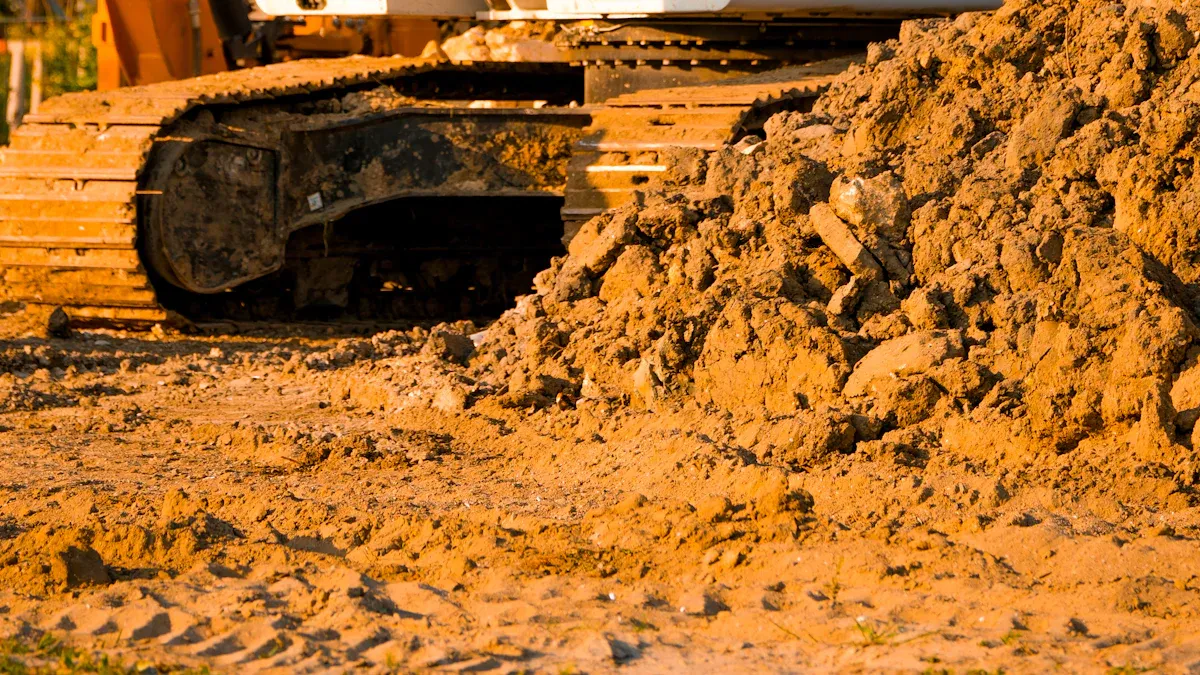
Signs of Wear
You should look for signs that parts need replacing. Each part has its own warning signs. The table below shows common problems to check for:
Engine Part | Signs of Wear |
|---|---|
Engine Oil Filters | Lower performance, louder engine, more oil changes |
Fuel Injectors | Uses more fuel, engine misfires, rough idle, smoke from exhaust |
Pistons | Compression drops, uses more oil, piston slap noise |
Cooling Fans | Engine gets too hot, strange sounds, cools less |
If you see these signs, replace the parts soon. Acting fast saves money and keeps your excavator working well.
Replacement Steps
When you spot wear, follow these steps to replace parts safely:
Turn off the excavator and let it cool down.
Get the right tools and safety equipment.
Take out the old part with care.
Clean the area before putting in the new part.
Use good parts for longer life and better work.
Test the excavator after you finish changing the part.
Always pick high-quality parts for every replacement. This helps your excavator last longer and work better. YNF Machinery sells strong and reliable parts for excavator engine parts replacement.
Part Compatibility
Picking the right parts is very important. Here are some tips to help you choose:
Check part numbers in your manual twice.
Use diagrams to find and name parts.
Use lookup tools to match part numbers.
Pick good and matching parts for better work and longer life.
Think about quality, price, and how the part looks when you buy.
Getting the right part number stops mistakes. Using good parts from YNF Machinery makes replacing parts easy and keeps your excavator working great.
Repair
Troubleshooting
You can fix many excavator engine problems by following simple steps. First, check the easy things. If your excavator will not start, look at the battery. Make sure the battery has power and the wires are tight. Loose wires between the battery and starter motor can cause trouble. Check if the starter motor works right.
When you see engine problems, try these steps:
Look for weak or dead batteries.
Check all wires for loose spots.
Test the starter motor for problems.
Make sure the fuel is clean and the tank is full.
Check coolant levels to stop overheating.
Clean the cooling system often.
Make sure the air filter is clean and the turbocharger works.
If you see too much smoke from the exhaust, check the air filter and turbocharger. For common problems, always check fluids and change filters when needed. Doing regular checks can stop many repairs.
Tip: Write down every troubleshooting step you take. This helps you remember repairs and find patterns in engine problems.
Common Issues
Excavator engines often have a few main problems. You might hear strange sounds or see the engine get too hot. Sometimes, the engine loses power or uses more oil than normal. Changing oil and filters often helps stop these problems. Always watch the engine temperature gauge to catch overheating early.
Here is a table with common problems and how to fix them:
Problem | Cause | Solution |
|---|---|---|
Loud engine noise and vibration | Damage to the bottom guard plate | Remove and flatten the guard plate |
High oil consumption | Oil leaks into the combustion chamber | Contact a repair shop for professional help |
Insufficient power, black smoke | Late ignition, low combustion pressure | Seek timely repairs from a service shop |
Difficulty starting | Spark plug failure or excessive ignition | Inspect and maintain spark plugs |
Hydraulic system problems can also hurt engine performance. If you see slow movement or leaks, check hoses and connections right away. Fixing hydraulic problems keeps your excavator working well. For good repairs and strong parts, YNF Machinery can help you.
You help your excavator stay strong by checking engine parts often. You should also check the hydraulic system a lot. Changing oil and filters, checking the fuel system, and watching the hydraulic system stop breakdowns. The table below shows how each job helps your machine work better:
Maintenance Activity | Impact on Reliability |
|---|---|
Oil and filter changes | Keeps the engine working well and saves fuel |
Fuel system inspections | Finds problems early and stops breakdowns |
Monitoring coolant levels | Keeps the engine cool and stops overheating |
Routine lubrication and inspections | Lowers damage and helps your machine last longer |
If you use the checklist and take care of the hydraulic system, your excavator lasts longer and you save money. The hydraulic system needs daily checks and regular oiling. You should look at hoses, pumps, and connections closely. Check the hydraulic system before and after you use the excavator. The hydraulic system helps every part move, so keep it clean and fix leaks fast. Make sure the oil level is right and the filters are clean. Change the hydraulic system filters every 250 hours. Change suction strainers when needed. Use clean and good fluids for the hydraulic system. If you ignore leaks or let dirt build up, the hydraulic system can break. Check the hydraulic system when the weather changes. Using the right parts and fluids helps the hydraulic system last longer. Check for pressure and flow problems in the hydraulic system. If you skip maintenance, the hydraulic system can stop working. The hydraulic system keeps your excavator safe. It helps you avoid expensive repairs. The hydraulic system is very important for your excavator. The checklist helps you feel sure about your machine. The hydraulic system helps your excavator work well every day.
Keep checking your excavator and use the checklist to help your hydraulic system stay strong.
FAQ
What is the most important part to check during excavator engine maintenance?
You should always check the oil and filters first. Clean oil and filters keep your engine safe. Dirty oil or clogged filters can cause big problems fast.
How often should you replace hydraulic system filters?
You need to change hydraulic system filters every 250 hours. Clean filters help your hydraulic system work well and last longer.
What signs show that you need to replace engine parts?
Look for strange noises, smoke, leaks, or loss of power. If you see these signs, check your engine parts right away.
Can you use any brand for replacement parts?
You should use high-quality parts that match your machine. YNF Machinery offers strong and reliable excavator engine parts.
Why does regular inspection help your excavator last longer?
Regular inspection helps you find small problems early. You can fix them before they turn into big repairs. This keeps your excavator working longer and saves money.
